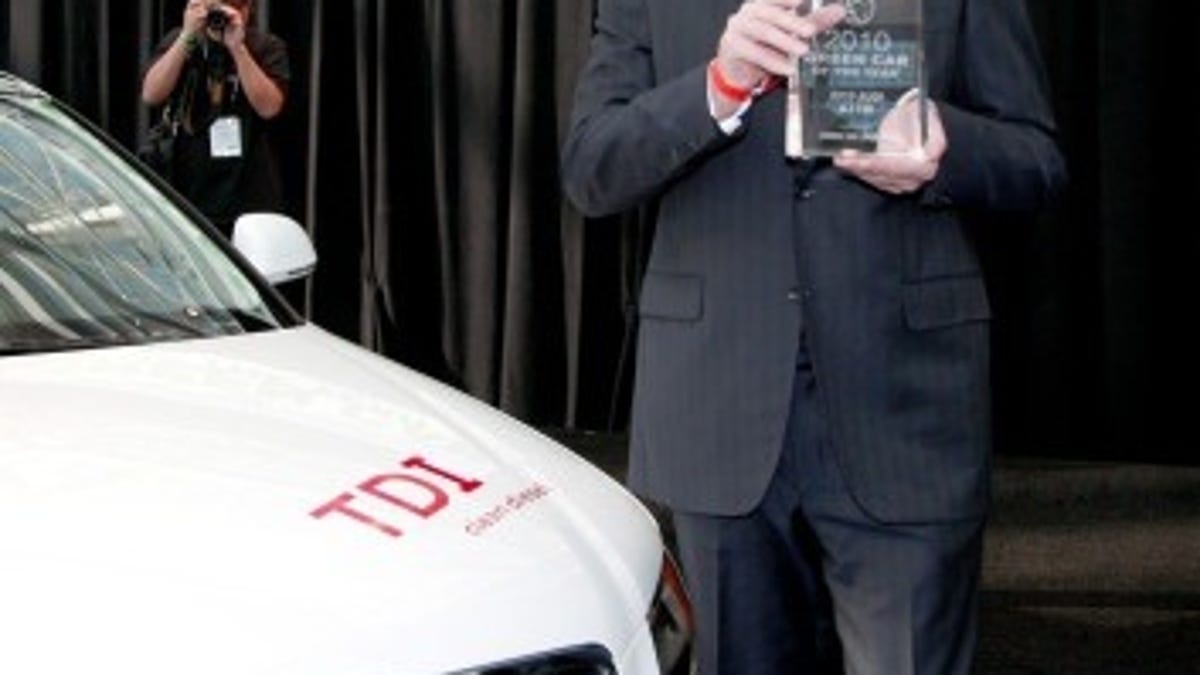Rentech's synthetic diesel fueling A3 TDI road trip
When Audi accepted last year's 2010 Green Car of the Year award, it may not have realized that a road trip was part of the prize package. Next week, two Audi A3s will traverse down the California coast as part of the magazine's Green Car of the Year Tour using Rentech's RenDiesel to power their 2.0-liter diesel engines.

When Audi accepted Green Car Journal's 2010 Green Car of the Year award, it may not have realized that a road trip was part of the prize package. Next week, two Audi A3 TDIs will travel down the California coast as part of the magazine's Green Car of the Year Tour, using Rentech's synthetic RenDiesel fuel to power their 2.0-liter diesel engines.
RenDiesel is an advanced biofuel made from renewable feedstock (in this case, woody green waste), but it meets the petroleum diesel transportation fuel specification, ASTM D975, around which automotive manufacturers develop their diesel engines. This means RenDiesel can be used in diesel vehicles without any modifications to engine, power train, or other supporting components, and it can be delivered to fueling stations through existing petroleum infrastructure.
Although RenDiesel has similar properties to biodiesel, that term is reserved for diesel fuel made from plant oils by transesterification. Rentech makes its synthetic fuel by gasifying plant material to turn it into carbon monoxide and hydrogen, which the Colorado-based company then transforms into hydrocarbon fuel using its proprietary technology and process.
At 94 percent of the energy density of its petroleum counterpart, RenDiesel has more energy per gallon than biodiesel, which comes in at 90 percent compared to petroleum diesel. On the road trip, the Audi A3 TDIs, which normally average 42 mpg, are expected to achieve 40 mpg using RenDiesel. However, the cars will produce 50 percent less emissions and particulates. Upping the ante, RenTech's production facility is powered by biofuel, giving the Audi A3 TDIs a lower net carbon footprint lower an electric vehicle recharged using electricity from a coal-fired plant.
If it sounds too good to be true, you may want to see it for yourself. The tour kicks off on Oct. 18 in Eureka, Calif., with stops at Audi dealerships along the way to refuel on RenDiesel, and will terminate in San Diego on Oct. 20. The dual Audi A3 TDIs will take a detour to visit Rentech's future commercial-scale production facility--expected to open in 2012--in Rialto, Calif., before ending up on display up at the Petersen Automotive Museum on October 21.
It will be a few years until consumers can fill their own vehicles with the advanced biofuel--the Rialto production facility can produce only 9.8 million barrels of synthetic fuel each year that will be sold to fleet customers, such as Aircraft Service International Group, in early 2013. Rentech's large-scale production facility in Mississippi has a capacity of 102.2 million barrels of RenDiesel per year and will go online in 2015. That's several years away, but the good news is that because it meets the ASTM D975 specification, the biofuel is automatically approved for sale in commercial fueling stations. The hard part will be getting the public to embrace diesels.

